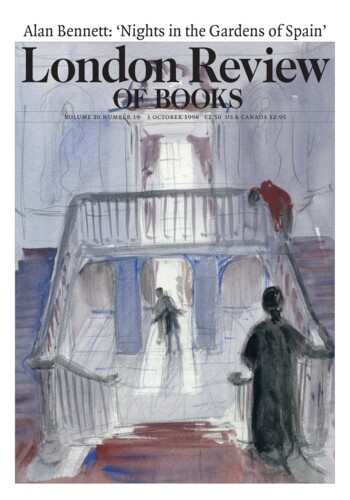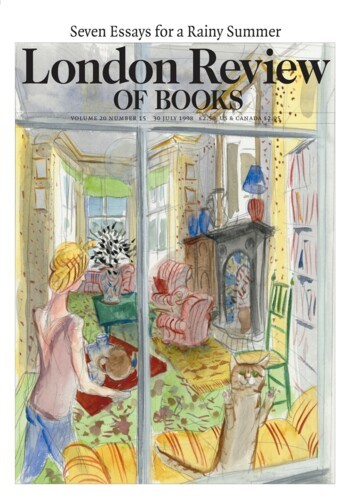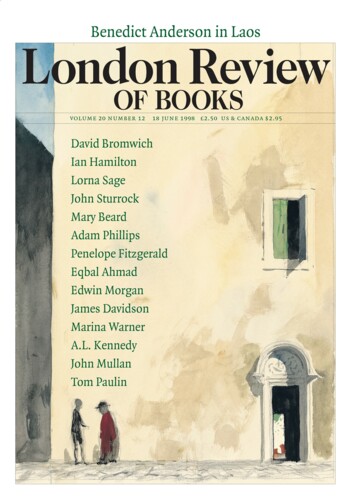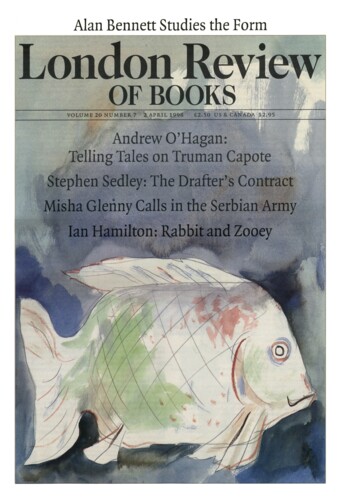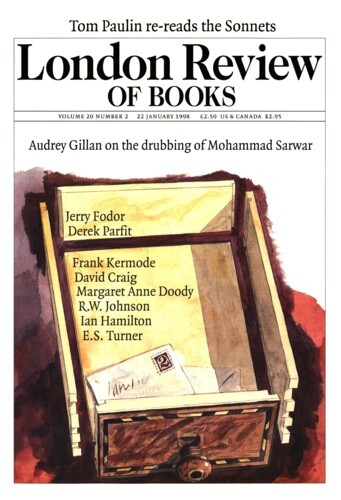Hobnobbing
Ian Hamilton, 1 October 1998
In February 1940, a Reynolds News reviewer wrote of the three Sitwells, Osbert, Edith and Sacheverell: ‘Now oblivion has claimed them, and they are remembered with a kindly if slightly cynical smile.’ And this, I suppose, is more or less how they are thought of now. Edith’s dark vowels still find their way into anthologies. Osbert’s plush and ponderous five-volume autobiography is always likely to be named in surveys of books that are unjustly out of print. And Sacheverell still holds his surprise niche in Michael Roberts’s classic Faber Book of Modern Verse. Sachie is also valued as the prince of self-help publishing: according to the Oxford Companion to English Verse, between 1972 and 1978 he ‘privately printed’ no fewer than 43 collections of his verse.‘
